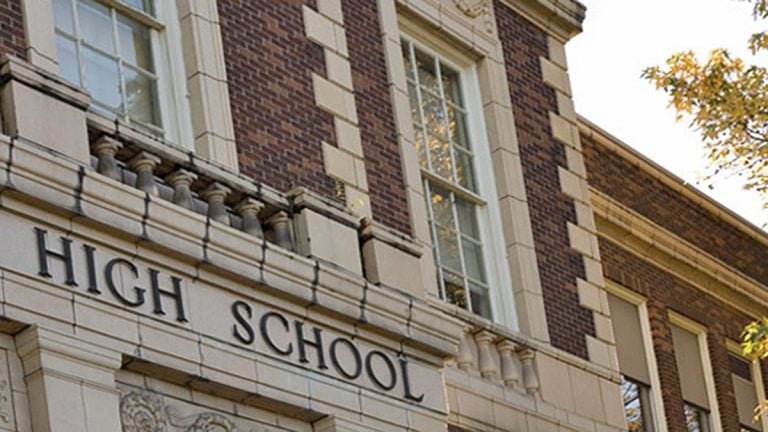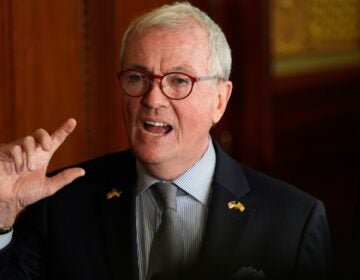Explainer: New Jersey’s Urban Hope Act

What it is: The Urban Hope Act was enacted and signed into law in 2012, opening the way for hybrid charters known as “renaissance schools” to open in three cities: Camden, Trenton, and Newark. Only Camden decided to move on this option and now has three networks approved and opening their first schools this fall.
What it does The law allows for charter companies to apply to the city to open and build new schools under certain conditions. For one, they are funded at greater rates than traditional charters — roughly 95 percent of per-pupil costs in the city — and given incentives to build new facilities. But they also must adhere to the district’s enrollment patterns, drawing from the neighborhood catchments. Unlike traditional charters, each applicant must also be approved by the local board of education.
What it means: The law is a broad change in how charters operate and has the potential to transform Camden, where as many as many as 15 schools are slated to open over the next decade. That has brought heated political debate to the city, especially with the state’s recent takeover of the district. Gov. Chris Christie has also staked a great deal on the law and its potential to transform Camden and is making the city a centerpiece of his education reform agenda.
Not finished: The Assembly yesterday approved changes to the law that would extend the process another year and likely bring still more charter organizations to the city. The Senate approved the changes last week, and they are sure to be signed by Christie.
The three winners so far: The three organizations approved for new schools are KIPP (Knowledge is Power Program), Mastery Schools, and Uncommon Schools. KIPP and Uncommon are two of the best-known networks in the country, as well as strong presences in Newark, and Mastery has been notable in its “turnaround” model in Philadelphia, just across the river.
The Norcross connection: The law’s prime sponsor in the Senate was state Sen. Donald Norcross (D-Camden). The law’s prime supporter in Camden is his brother, George Norcross, the South Jersey businessman and Democratic leader. And it turns out the first school approved and opened by KIPP came with the backing of the Norcross family foundation and the Cooper Health system that George Norcross chairs. The first school is named KIPP Cooper Norcross Academy.
The controversy: There is a lot of debate — and even a legal challenge — surrounding the new law and what’s come of it. The New Jersey Education Association, the teachers union, has strenuously opposed it, calling it a “corporate takeover” of the district. Other public school advocates have been equally vocal in claiming that it is drawing funds and resources from district schools. And a group of parents and activists were part of a legal challenge of the most recent changes, which drew an instant rebuke from the NJEA and Save Our Schools NJ, a grassroots group, while drawing praise from the Camden public schools and one of the charter organizations.
The latest changes: The bill approved by the Assembly yesterday and the Senate last week will extend the application process for another year, opening up the way for more charter networks and also allow existing organizations to use district facilities. Previously, new schools had to be built. The original version of the bill was conditionally vetoed by Christie over a clause that would have also provided early retirement benefits for Camden school district teachers in peril of being laid off. Without that clause, the bill still passed overwhelmingly in the Senate and by a 42-12 vote in the Assembly. Democrats were on board in the Senate, but many voted no or abstained in the Assembly.
Key players:
Gov. Christ Christie: Camden has become his poster child for urban reforms, not just in the schools but also in police and other areas. The Urban Hope Act is a centerpiece of that, and he is sure to continue trumpeting it as he considers a run for the White House.
George Norcross: The South Jersey powerbroker has staked a lot of his promises for Camden’s revival on the growth of not just his namesake school, but also that of the other organizations and the Camden takeover as a whole.
Paymon Rouhanifard, state-appointed superintendent: Put in his job in 2013 to lead the district schools, Rouhanifard has said that the advent of the renaissance schools is critical to providing quality choices for Camden families.
MoNeke Ragsdale: Ragsdale is among a core group of community activists who — with the backing of statewide advocates — have challenged the new law both on the streets and in the courtroom. Their success or failure will help determine just how far the law goes.
_________________________________________________
NJ Spotlight, an independent online news service on issues critical to New Jersey, makes its in-depth reporting available to NewsWorks.
WHYY is your source for fact-based, in-depth journalism and information. As a nonprofit organization, we rely on financial support from readers like you. Please give today.




